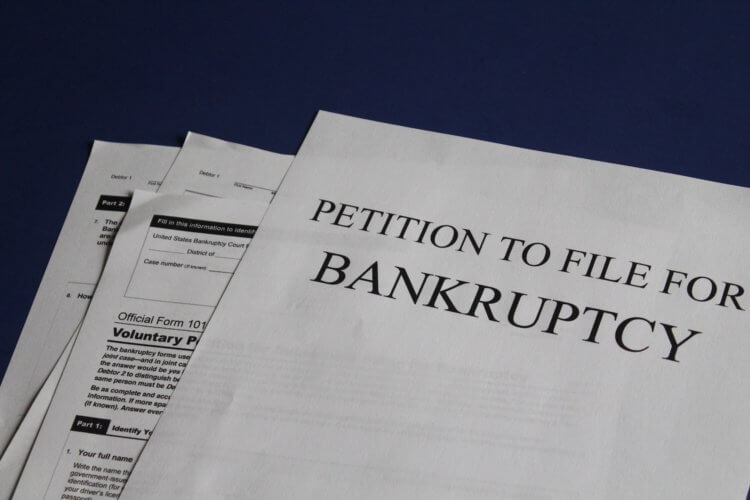
Like all the other economic crises before, the impending recession will cause a decline in business activity, increased unemployment, rising government debt levels, and credit squeezes. Due to a liquidity shortfall, both consumers’ and businesses’ ability to meet debt payment obligations will weaken. Many businesses are getting pushed into a state of insolvency.
More and more companies and households are seeking the shelter of bankruptcy. Many serious questions arise in the light of the bleak financial reality that thousands face during the pandemic—can they withstand the financial storm?
For bankruptcy lawyers, this means that they should be gearing up for an increased need for their services. Now might be the right time to consider switching to insolvency and bankruptcy law.

It’s only a matter of time
The pandemic has blown out the debt of all major public institutions around the world. In the US, national debt levels are also at an all-time high.
When the pandemic slammed into the world economy, observers and researchers claimed that it was only a matter of time before businesses and consumers turned to bankruptcy to free themselves of debt. This didn’t come in 2020, but studies suggest that the wait will continue at a cost to those who are facing climbing debt loads.
By filing for Chapter 7 bankruptcy (a liquidation and an installment plan), consumers and their creditors can work out arrangements to discharge debts and pay off balances. For an average consumer, delaying bankruptcy means digging a deeper hole. A lot of that debt increase is debt that’s not on credit reports, which is what we call shadow debt. It includes unpaid rents, bounced checks, and certain medical costs.
Before you decide to make a switch
You may have been interested in other areas of the law for some time, and bankruptcy law may seem appealing. Switching your law firm’s practice area is doable, especially if you find bankruptcy law to be more fulfilling and worth it. However, it’s not easy—you’ll have to make a strategic approach and remember that change won’t happen overnight. Making a switch involves more than reading up on bankruptcy case law.
First, you should ask yourself why you want to change your practice area by having an honest conversation with yourself.
Second, are you up for the challenge? Are you ready to feel like a rookie again? Are you willing to invest effort and time into learning new things?
Answering these questions will make you more confident because you will know why you’ve made the decision, as well as that it’s the right one.

Being a bankruptcy lawyer
A 2020 study, in which the researchers examined the impact of the COVID-19 crisis on business and consumer bankruptcies, shows a constant rise of bankruptcies since the start of this crisis. As the pandemic continues to wither the global economy and businesses across the globe pay the price, people are putting more faith in BRR—business restructuring and reorganization. Whether you are a bankruptcy lawyer or not, it’s a good time to consider the benefits of running a bankruptcy law practice.
Increasing business restructuring and reorganization
In preparation for an unprecedented influx of work, businesses are boosting their search for fresh talent and reassigning juniors. And whatever your expertise might be—M&A, finance, litigation—there is work for everyone. Many lawyers that started their careers after the previous recession have found that bankruptcy lawyers typically have similar challenges and goals as their attorney colleagues in other practice areas. The difference today is that the demand for their skill sets allows them to address their challenges and goals with a certain degree of leverage.
When setting their career goals, young lawyers often overlook or even dismiss BRR, when in fact BRR offers early and valuable experience in the courtroom and boardroom. To be clear, bankruptcy attorneys are in demand, but that doesn’t mean that every business that’s not a giant (like Google or Amazon) is going to go bankrupt. Filing for bankruptcy is expensive and is usually the last resort, so lawyers spend a lot of their time trying to find alternatives to it.
What will be key in preventing bankruptcies are reorganizations, restructurings, and other repairs to the creditor-debtor relationship. Almost every business loan will need some kind of modification, but there are predictions of worsening situations for struggling businesses. Banks are going to re-evaluate loans and will want to get rid of the weak links in their loan portfolios. The retail industry is an easy target to name in terms of which industries will likely be hit. Once principal deferrals and forbearance agreements expire, banks will become more aggressive and bankruptcies will follow.
What bankruptcy law is about
When considering filing for bankruptcy, businesses pay a great deal of attention to choosing the best bankruptcy attorney. The whole process takes a good understanding of legal issues and careful preparation. Any mistakes or misunderstandings of the law in the process can affect their rights.
As a bankruptcy lawyer, you can aid your clients’ cases by:
- Helping them decide whether to proceed with a bankruptcy filing or to take an alternative route.
- Counseling about what property they might be able to hold on to.
- Advising them on what type of bankruptcy to pursue.
- Informing them about whether they should keep making payments to their creditors.
- Providing input on the tax consequences your clients will face.
Bankruptcy law is all about equity and balancing the rights of the creditors to receive their payment and rights of the consumers to receive relief. A good bankruptcy lawyer can help during a state of crisis to provide legal guidance, and their work involves a combination of empathy and strategy. It also requires a mix of legal oratory ability and writing skills, creative problem-solving skills, the ability to compromise, and financial literacy.
To succeed in BRR, it’s important to understand how lender and debtor practices do business. When it comes to debtor practices, they’re considered somewhat an anomaly because they don’t get repeat business from businesses going through liquidation.
As a bankruptcy lawyer, you can represent either debtors or creditors. However, you can also serve as an impartial intermediary who is responsible for ensuring that the entire bankruptcy process is fair. In the near future, bankruptcy lawyers anticipate a huge influx of business for a variety of reasons.
Besides the aforementioned negative financial implications of the pandemic, many people and businesses received temporary stimulus relief. After this financial relief expires, many businesses will be relying heavily on government assistance (without which they might collapse) and are teetering on the edge of financial insolvency.

Where do bankruptcy lawyers work?
Many bankruptcy attorneys work in private law firms and they represent:
- Corporate and individual debtors.
- Corporate and individual creditors.
- Bankruptcy trustees.
- Creditors’ committees.
Mid-size and large law firms may have departments specializing in bankruptcy and creditors’ rights, while some small firms are called “bankruptcy boutiques” (all members specialize in bankruptcy).
Furthermore, bankruptcy lawyers can also work in corporations, utilities, title companies, and banks, in their corporate legal department. There, they may work on debtor rights issues or bankruptcy issues.
The government also employs bankruptcy attorneys for state and municipal tax authorities, Canada Revenue Agency (CRA), Pension Benefit Guaranty Corporation (PBGC), and others.
Bankruptcy attorneys: The fixers
Moving to bankruptcy practices could be a chance for doing more meaningful work. The advantage of BRR practices lies in its difference, and it’s the last place where you can be what attorneys used to be all about—the client’s “go-to person.” By handling work that entails IP, employment, litigation, and corporate tasks, you get a chance to work closely with businesses. You should develop knowledge in all those areas as you will navigate complex court proceedings, sell off assets, make deals, and strike agreements between debtors and creditors.
Bankruptcy attorneys are there to work efficiently and quickly to resolve problems in an attempt to save the business. It’s a no-game, straightforward approach.
Possibly the best way to label most modern bankruptcy attorneys is— business and debt solutions. So, instead of selling yourself as a bankruptcy lawyer, try thinking of yourself as a fixer or a “solution person.” The job entails fixing broken businesses enough and then selling them off. And there is no typical day since it’s a very diverse practice area.
Subscribe to the blog
-

Software made for law firms, loved by clients
We're the world's leading provider of cloud-based legal software. With Clio's low-barrier and affordable solutions, lawyers can manage and grow their firms more effectively, more profitably, and with better client experiences. We're redefining how lawyers manage their firms by equipping them with essential tools to run their firms securely from any device, anywhere.
Learn More
